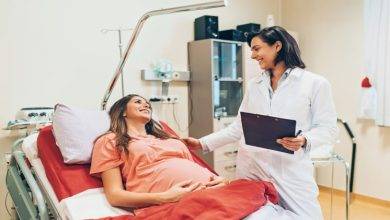
We live in a fast-paced world where time often does not exist. Furthermore, every woman faces a number of challenges in personal and professional areas. There are situations where they end up struggling to have enough time for themselves, which ends up in health issues. As the nucleus of the family, healthy women contribute to a healthy society.
It is difficult to balance good health and a hectic life. But to have a better life ahead, a woman needs to undergo regular health checkups that can help in knowing their hidden issues.
Women are not exempt from the importance of routine health examinations in preserving overall well-being and good health. These regular examinations are essential for preventative healthcare, early identification of any health problems, and general wellness. There are women’s health checkup packages that can be selected as per the health issues they face.
What is a Women’s Health Checkup Referred to as?
Women’s health checkups aren’t very common, and the examination includes a complete checkup of the body. The most thorough physical will help you to know your overall health, update your immunizations, and assess your likelihood of experiencing future medical issues.
The screening requirements will eventually vary as a woman goes through different phases of the body, including menopause, reproductive years, and several other stages. You can build a connection of trust with your doctor through regular checkups and get guidance on leading a healthy lifestyle.
Let us check some of the reasons why women should undergo regular health checkups-
- Prevention and Early Detection
Regular health checkups enable medical practitioners to spot potential health problems early on, frequently before symptoms emerge. Early identification is essential for effective therapy and can vastly enhance results. For women, this may mean detecting diseases like osteoporosis, cervical cancer, heart disease, and diabetes at an earlier and more manageable stage.
- Reproductive Well-being
Women’s health is distinct from men’s and demands special treatment, especially in terms of reproductive health. The chance to talk about and resolve issues with menstrual cycles, fertility, and menopause is offered by routine visits. Mammograms, Pap smears, and gynecological exams are crucial tests that aid in the early identification and prevention of problems with reproductive health.
- Manage Chronic Disease
Chronic diseases like diabetes, hypertension, and autoimmune illnesses are common in women. Monitoring these disorders, modifying treatment regimens, and avoiding consequences all depend on routine checks. The best part of undergoing regular health checkups is you can avoid getting close to chronic disease and maintain a good lifestyle.
- Check-ins for Mental Health
Women frequently balance a variety of obligations, including family, job, and personal activities. Since there is a huge pressure in personal life, it is important to check for mental health. It helps in addressing mental health issues in advance. Moreover, it will help in getting better treatment at the advanced stage.
Different Types of Women Full Body Checkup
- Human Papilloma Virus (HPV) and pap tests:
According to health experts, Pap tests for women should start at age 21 and done in every 3 years. At age 30, HPV testing should begin along with Pap tests, and you should undergo follow-up exams at least every five years.
- STD testing for sexually transmitted illnesses:
Since STDs frequently have no symptoms, you can spread them to your partner or, if you’re pregnant, to the unborn kid. Even if you don’t engage in sexual activity, it’s still vital to talk to your doctor about STDs and pregnancy prevention. Testing can be carried out if necessary, and this can be done in a very less intrusive way.
- Diabetes Screening:
In case of no risk factors, women should undergo the diabetes screening after 35 years age to keep a tab on it. f you have risk factors including a family history of the disease, are overweight or obese, have high blood pressure, or have a history of heart disease, screening may be earlier or more frequently.
- Mammogram:
For women without a family history, the current advice is to start getting mammograms at age 40 and then get checked once a year after that. Women with a high family history of breast cancer may benefit from getting mammograms more frequently and earlier.
- Cholesterol Test:
For women without risk factors, cholesterol screening should start at age 45; for those who do, it should start at age 20. Diabetes, heart disease, kidney disease, and a few other medical conditions are risk factors.
- Lung cancer screening:
If you are a passive smoker, it is best that you start getting screened for lung cancer at the age of 50.
- Bone density test:
Your bones are less likely to break if they are denser. At age 50, start getting tested if you are physically frail or have other significant risk factors. Once your 65, it is advised to get the testing done regularly.
Conclusion
Regular health checkups aid in building a solid and reliable rapport with medical professionals. As doctors are better able to grasp your health history, lifestyle, and preferences, having a solid rapport with your healthcare team provides personalized and effective care.
Since women stay busy with their work, undergoing the test at the lab can be difficult. However, with Orange Health Lab, you can take the lab test at home and receive the report at your doorstep.




